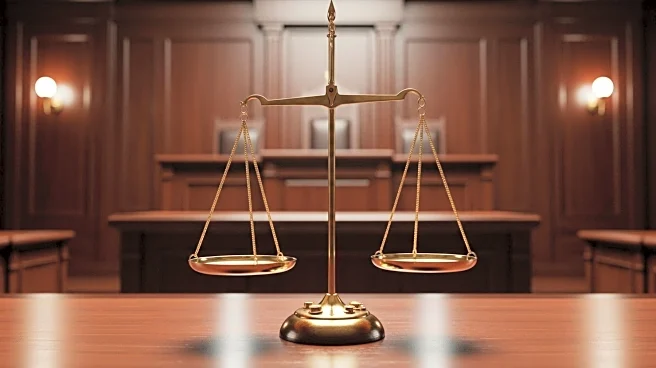What's Happening?
The Supreme Court is set to review the legality of tariffs imposed by President Trump, which have been challenged by small businesses and several states. These tariffs, described as the largest peacetime tax increase in American history, were implemented by Trump to address trade deficits and curb drug trafficking across U.S. borders. The legal justification for these tariffs is based on the International Emergency Economic Powers Act of 1977, which allows the president to regulate importation in response to national security threats. Despite being ruled illegal by judges handling international trade cases, the tariffs remain in place pending appeals. The Supreme Court's decision on this matter will test the limits of presidential power, particularly in the context of executive orders.
Why It's Important?
The Supreme Court's decision on President Trump's tariffs could have significant implications for presidential authority and the separation of powers. A ruling in favor of Trump may expand executive power, allowing future presidents to impose tariffs without congressional approval by citing national emergencies. This could alter the balance of power between the executive and legislative branches, impacting U.S. trade policy and economic relations. Businesses affected by the tariffs may face continued financial strain, while the broader economy could experience disruptions depending on the court's ruling. The case also highlights ongoing debates about the scope of presidential power and the role of the judiciary in checking executive actions.
What's Next?
The Supreme Court is scheduled to hear arguments on the tariffs case on November 5. A decision is expected to have far-reaching consequences for U.S. trade policy and presidential authority. Additionally, the Trump administration has requested the court to review birthright citizenship under the 14th Amendment, with arguments likely to be heard early next year. These cases will further test the constitutional limits of executive power and could set precedents for future administrations. Stakeholders, including businesses, legal experts, and policymakers, will be closely monitoring the outcomes and potential impacts on U.S. governance and international trade relations.
Beyond the Headlines
The legal challenges to President Trump's tariffs and the upcoming Supreme Court review underscore broader questions about the balance of power in the U.S. government. The case may prompt discussions on the ethical and legal dimensions of executive authority, particularly in relation to national security and economic policy. Long-term shifts in the interpretation of presidential powers could influence future administrations and legislative actions, potentially reshaping the landscape of U.S. governance. The implications of these decisions may extend beyond immediate economic impacts, affecting the foundational principles of American democracy.











